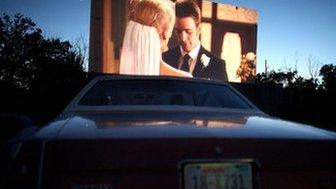Coronavirus: Could drive-in cinemas take off in the UK?
- Published
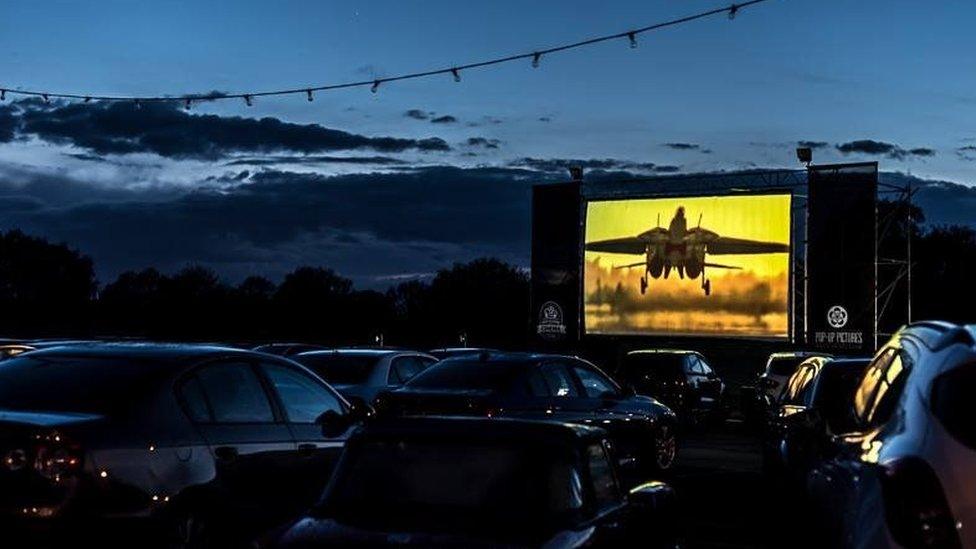
A showing of the 1980s film Top Gun at Popup Pictures
Like diners and baseball cards, few things scream Americana more than drive-in cinemas. But in the UK, watching films from the front seat of the car has never really got out of first gear. Could the easing of lockdown restrictions mean outdoor cinema finally gets its day on this side of the pond?
Eight weeks ago, Drive In Films did not exist. It was the brainchild of couple, Ian and Roseanne Marriott, and so confident were they it would take off, they have invested £25,000 in their plan.
"I got furloughed from the work that I normally do and we thought, what else could I do to support the family?" says Ian, who has worked in the broadcast and entertainment industries.
"We thought it fits with my skill-set and my background to do drive-in movie theatres. So we set up and it's gone from an idea to being real very quickly."
The couple, from Silverstone in Northamptonshire, were inspired to open a drive-in cinema after seeing how popular they are in South Korea, rather than the US.
They hope to open their own version on a football pitch in Mickleover in Derbyshire from July until September. The programme ranges from drive-in classic, Grease, to modern blockbusters such as The Joker and Rocketman.
It comes after Prime Minister Boris Johnson announced drive-in cinemas could open from Monday.
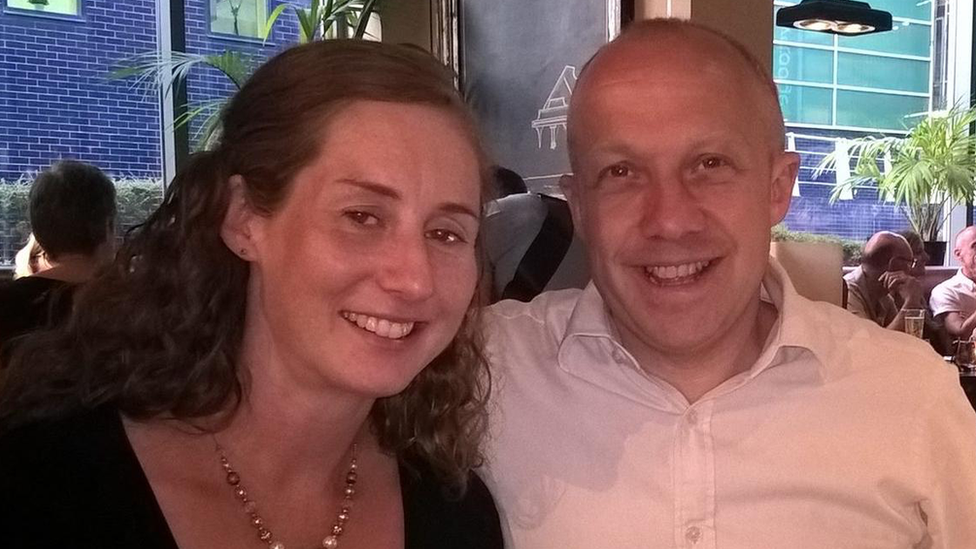
Ian and Roseanne Marriott set up their drive-in cinema business after he was furloughed
"It was just a bit entrepreneurial, I don't know if it will be a long-term venture," says Ian, 42.
"I think it's definitely a zeitgeist moment and [that] going forward there will be the opportunity to do more, like open air cinema."
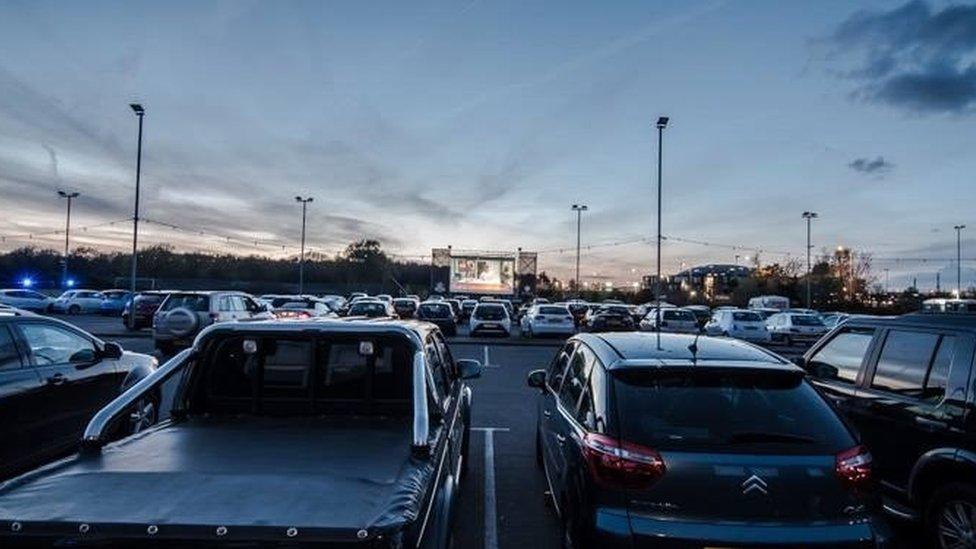
Danny Banthorpe said while he loves running drive-in shows, they have not proved financially viable
While not an entirely new concept in the UK, there are still only 20 permanent drive-in cinemas dotted around, external. It is not the country's changeable weather that have stopped them becoming more commonplace, but the lack of a decent profit margin, says Danny Banthorpe, director of Norwich-based Popup Pictures.
"We've been around for five years," he said. "We did a drive-in in our first year and we've probably done about half a dozen since.
"We've done Halloween and Christmas drive-ins, and we get people coming in the autumn and winter. So weather isn't an issue because you're in the comfort of your own cars.
"But in a nutshell it's not viable, that's why there's not many of them."
He said licensing films was the biggest expense, accounting for 40% of box office takings. Then comes the cost of the screen which, if you want to put cars in front of, needs to be big, and big means expensive.
And with the space you would use for 100 cars, you could put 500 people in front of a film-screen in a bricks and mortal cinema.
"Just the simple maths," said the 46-year-old. "Five hundred times £15 per movie as opposed to 100 times £20. Your revenue trebles with the sit-down versions."
But the company is wondering whether this might be the year drive-in shows become more viable and is planning to run a number of shows.
"As I've said, they've not been viable - but we absolutely adore doing them."

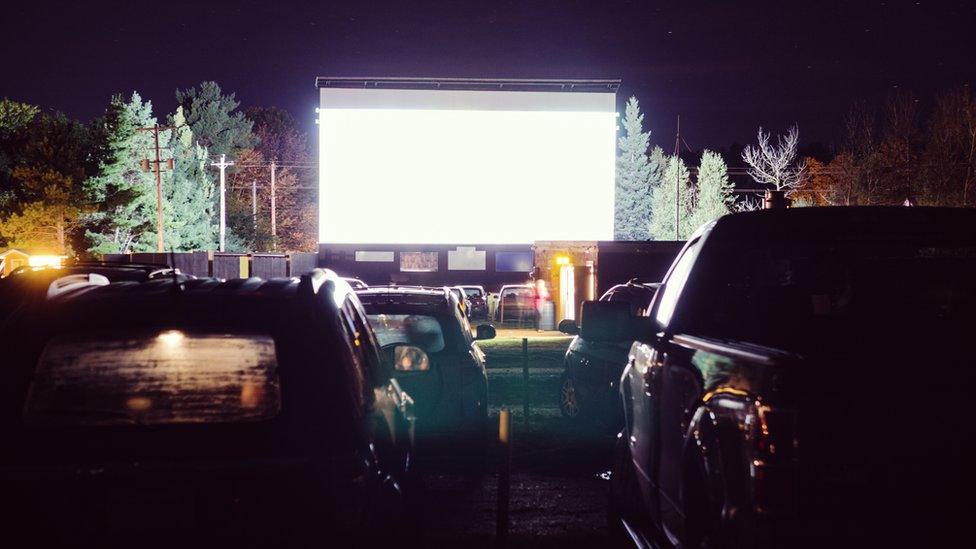
Drive-in cinema events could be the solution to finding entertainment this summer
Rise and fall of the drive-in
1933: First US drive-in opens in New Jersey
1934: Wilson Shankweiler opens second in Pennsylvania
1950: In-car heaters allow many drive-ins to stay open year-round
1958: Number of US drive-ins peaks at 4,063
1970s and 80s: High land values encourage many drive-in owners to sell up
1990s: Decline halts and some new drive-ins open as industry gains access to "first run" Hollywood blockbusters
2007: The first outdoor cinema company in England - Luna - is founded, external
2012: Route 66 is thought to be the first permanent drive-in cinema to open in England, external. It is no longer in business.

Dr Karina Aveyard, associate professor and postgraduate research director at the University of East Anglia, has studied the rise and fall of drive-in cinemas in the US and Australia.
Having attended drive-ins from a young age in Wagga Wagga, Australia, Dr Aveyard said the sheer amount of available land in the US and Australia - combined with a largely car-based culture and increased suburban living - was a key reason drive-ins took off there.
"The US and Australia are the only two countries that have had active drive-in histories," she said. "Drive-in relies on people having a car.
"And the US and Australia are car-based societies where it is quite normal for a 17 or 18-year-old not only to have a car, but to have a big car. Certainly in Australia, it was fairly common to go to a drive-in with four people in the boot."
One might think given the number of US airbases dotted around England, that drive-in cinema might have found a home in these mini bastions of American life.
Not so, says Bruce McPherson Lucas, who served at RAF Mildenhall as a base commander's driver during the 1960s.
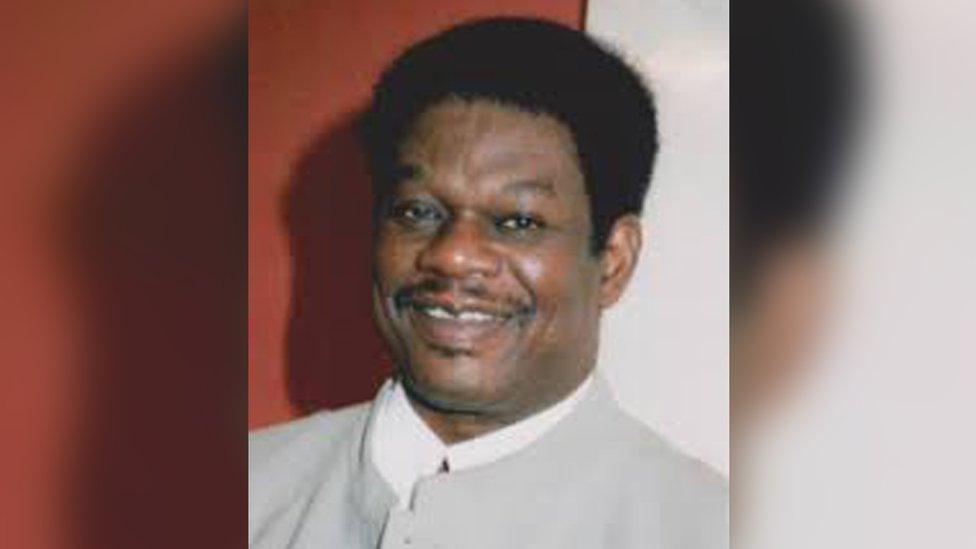
Former US serviceman turned soul singer Lucas said he has yet to visit a drive-in cinema
"We had a cinema and things like that, but no drive-in cinema," said Lucas, who now lives in Norfolk. "I didn't even go to one when I lived in Cleveland, Ohio - because I didn't have a car."
Instead, Lucas - whose 98-year-old mother Elizabeth has just recovered from coronavirus in Ohio, spent most of his free time off base, exploring English pubs and performing with musicians.
Will he finally go to a drive-in movie now, at the age of 77?
"I don't think so, I like the old movies. I am looking forward to going to the zoo though."
George Wood, founder of Luna Cinema, which started doing outdoor cinema in 2007, said: "It's going to be springing up in every corner of the UK this summer.
"This is classic Americana meets 21st Century needs in terms of social distancing," he told BBC Radio 5live. "It is the form of cinema that we think will be the route back to the big screen in all forms of entertainment.
"In this country, the drive-in is still such a novelty - most people have never been to a drive-in cinema."
He said technology, such as ordering food via an app and having it delivered to the bonnet of your car, will allow the experience to remain socially distanced.
"There's something really odd about the fact that this is the form of cinema that actually suits the current situation we're in, where people will feel so safe sat in their car, kind of cocooned away from their other audience members."
- Published30 May 2020
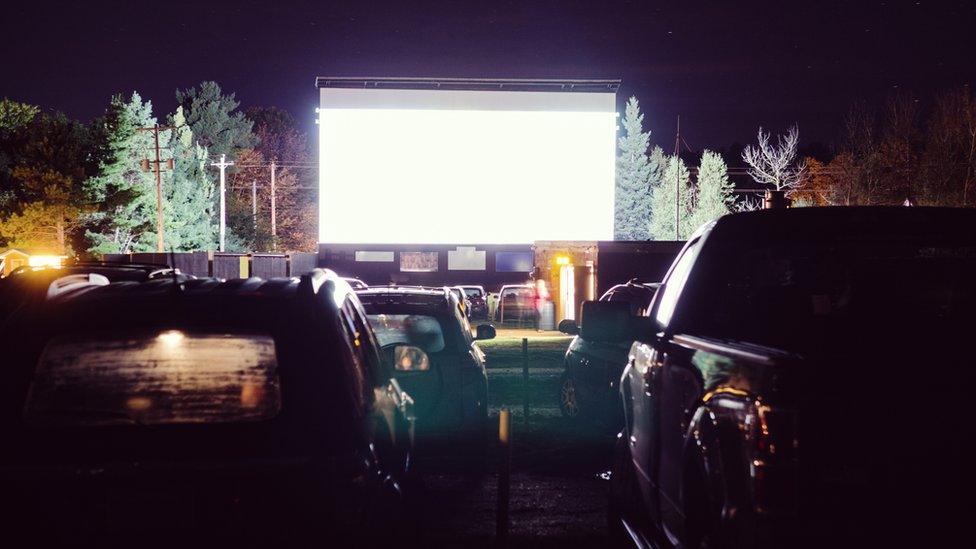
- Published9 December 2011
